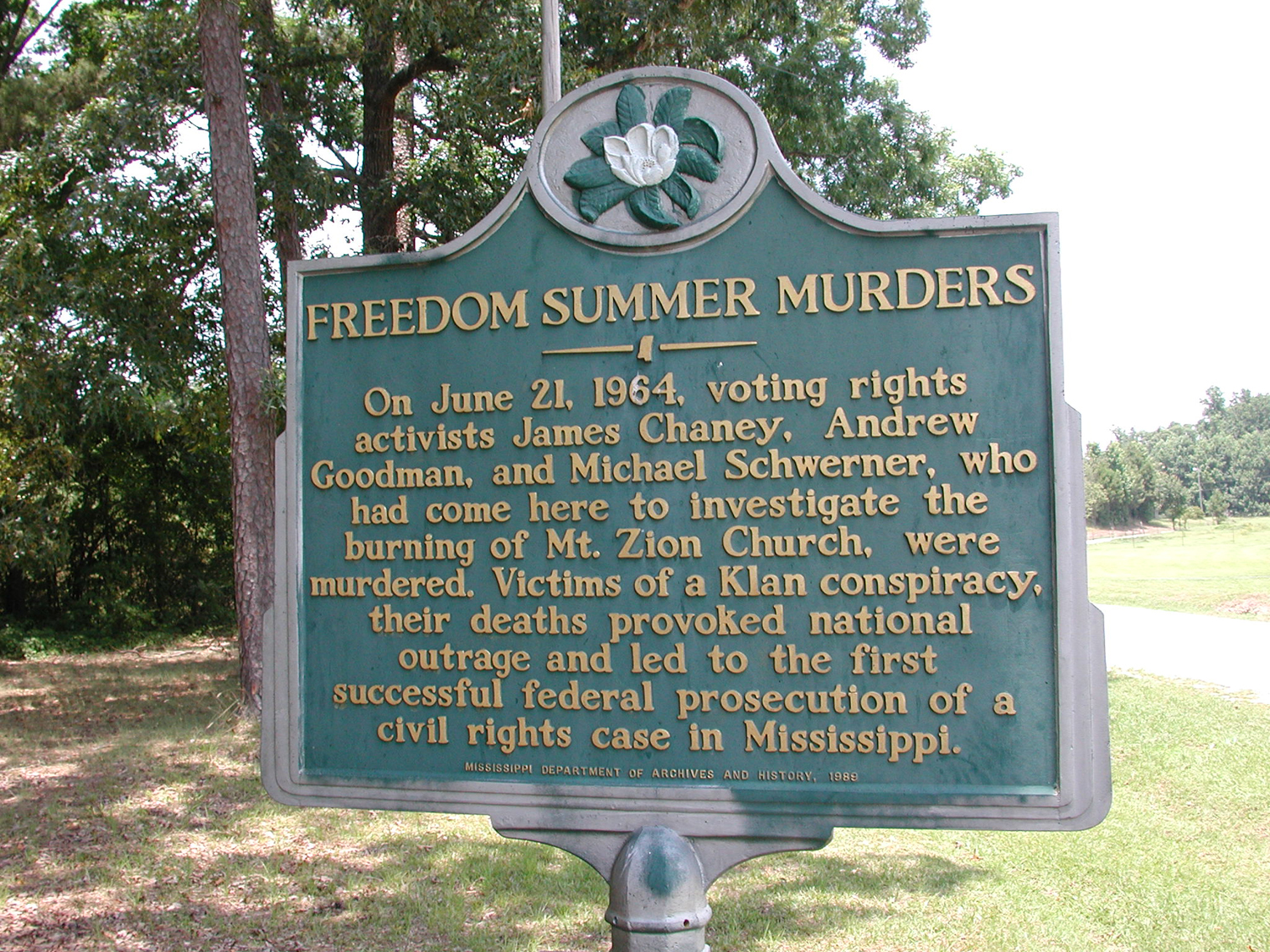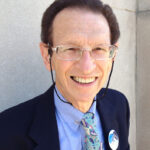 You may have noticed that our country is in a national election season! As a religious not-for-profit institution, we are very cautious to remain distant from endorsing or opposing candidates or parties. Although we are permitted to speak about policies, in a polarizing season such as this, it is difficult to speak about the policy without speaking about the politician.
You may have noticed that our country is in a national election season! As a religious not-for-profit institution, we are very cautious to remain distant from endorsing or opposing candidates or parties. Although we are permitted to speak about policies, in a polarizing season such as this, it is difficult to speak about the policy without speaking about the politician.
Still, we cannot and ought not entirely separate our congregational life from the process. So voter registration work is the meaningful way that Rodeph Shalom empowers participation in the peaceful transfer of power we call democracy. Judaism offers profound wisdom on what it means to take on the responsibility of voting and empowering others to vote:
Psalms teaches, “This is the generation and those who seek its welfare.” In the Talmud, the ancient sage Rabbi Judah debates that this means the character of a generation is determined by its leader. He teaches that the selection of leadership –political election– is critical to the welfare of the people: so vote! Rabbi Judah’s colleagues disagree, insisting the text means that the character of the leader is determined by his or her generation. They teach us an important outcome of voting: our responsibility in the democracy extends far beyond election day; when we vote we become engaged constituents, increasing our influence over the course of a politician’s leadership: so vote! Whether the Psalm’s words: “This is the generation and those who seek its welfare” mean, it’s the leader that determines the character of the generation, or the generation that determines the character of its leader, the lesson is the same: vote, and empower voting. It is not only the civic thing to do. It’s a religious thing to do.
In partnership with our multi-faith community organizing network POWER’s campaign, called “Together We Vote,” aimed at making sure that the voices of all faiths, races, and income levels are represented at the voting polls, Rodeph Shalom is engaged in a Voter Registration drive. The leaders of the initiative asked the clergy: How about a table on Fridays before services? Would it be in the spirit of Shabbat?…
Yes! (Thanks to them for taking initiative and for volunteering at the table). Voter Registration is exactly the right message! For what matters to us? Responsibility for the world around us — This is the generation and those who seek its welfare. Gratitude for the protection of voting rights in 21st century Pennsylvania — This is the generation and those who seek its welfare.
For me, voting is so easy. I walk a block to the Veterans Center where friendly poll workers sign me in and greet my children. After waiting for four minutes at most, my son and daughter and I step into the booth. Once we exit, as the poll workers watch me quiz my kids about why voting, poll privacy, and shared responsibility are important, they offer “I voted today” stickers to the kids. No, my 10-year old and my 8-year old are not actually voting, but with their privilege, they already feel enfranchised, embraced by the institution, included in the process, in way I pray every child someday feels.
As we heed the Psalmist and understand, This is the generation and those who seek its welfare, we are mindful of past generations in history and other regions in our nation today, where voting has not come with such ease.
Our Yom Kippur Machzor’s Eleh Azkarah section, the Martyrology collection called “These, I remember,” includes a tribute to James Chaney, Andrew Goodman and Michael Schwerner. These 2 Jewish and 1 African American young civil rights activists met in 1964, intended on a summer of voter registration among African Americans in Neshoba County, Mississippi, and they were murdered that June by the Ku Klux Klan. In this democracy, Chaney, Goodman and Schwerner were killed for trying to make the vote accessible to people of color.
A year later, the Voting Rights Act of 1965 legislated voting protections that particularly empowered Americans who were most disenfranchised by structural racism in elections: people of color. Since then, the Voting Rights Act was renewed, every time by bipartisan members of Congress… until 3 years ago when in Shelby County v. Holder, the Supreme Court struck down a key part of the Voting Rights Act. The 5-4 ruling removed Federal pre-clearance, a protection that restricted States from independently establishing voting barriers. Since 2013’s Shelby ruling, 15 states have passed voter suppression laws, legislating barriers such as stricter voter identification laws and restrictions on early voting.
Study after study demonstrates that the concern for voter fraud is simply false; the numbers of voter fraud are so miniscule that they carry no statistical significance. In Texas, you can use your gun license, but not your college ID to vote– the intention of that practice has nothing to do with voter fraud. It has to do with cynicism, and fear. Americans who lack resources to obtain more narrowly defined identification — Americans who are disproportionately people of color and people living in poverty — no longer have an equal right to vote.
This is the generation and those who seek its welfare. Last week, the Religious Action Center of Reform Judaism, in partnership with the NAACP, the Lawyers Committee for Civil Rights Under Law, and PICO National Network for faith-based community organizing of which POWER is a part, last week launched the Nitzavim Voting Rights Initiative. The name of the Torah portion we read on Yom Kippur, Nitzavim means Standing Up. By organizing registration and poll-place voter protection, Nitzavim is empowering communities to stand up for voter protection, for empowerment of the disenfranchised and for racial justice.
At last week’s launch of the Nitzavim Voting Rights Initiative in North Carolina, Rabbi Jonah Pesner honored the fact that the Voting Rights Act of 1965 was drafted in the conference room of the Religious Action Center of Reform Judaism. Then in the next speech at the event, Reverend Dr. William J. Barber II, the leader of the Moral Monday Movement, added his own interpretation: Reverend Barber said: “The Voting Rights Act was drafted in the blood of those who came from Selma to Montgomery, from Chaney, Goodman and Schwerner, and it was transcribed from blood to paper, and turned into a living document.”
Here in Pennsylvania, we do not live under voter suppression laws. But we are mindful of the blood of the drafting of the Voting Rights Act of 1965 and we are mindful of the barriers that many Americans face once again. This congregation can feel grateful to be a part of the greater Reform Movement who is leading Voter Protection in other states; they do so in our name. And we do our part when we support Voter registration here in Philadelphia. In a democracy, my vote is only legitimate, if every eligible American is empowered to vote.
Let us not take our right for granted. Please make sure you are registered and you have set time aside in your schedule to vote on November 8. The obligation is on every one of us, for this is the generation and those who seek its welfare. Voting is not only a civic duty; it is a religious act.
On Nov 8, may white kids, black kids and brown kids walk to the polls with their parents and wear that sticker: I voted today.
May kids from northern states and kids from southern states wear that sticker, I voted today.
May rich kids and poor kids wear that sticker: I voted today.
And may we all claim our voice and empower others to do the same, knowing that this is a sacred action.

